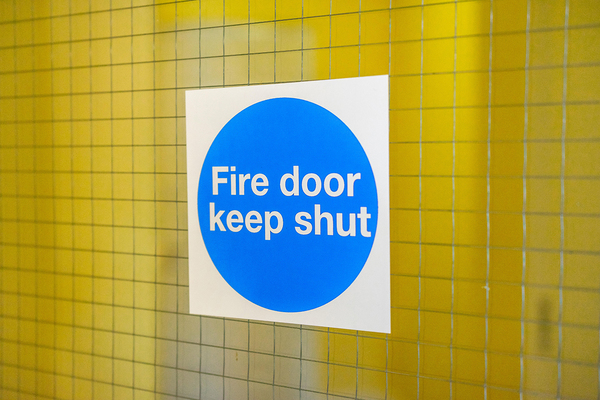You are viewing 1 of your 1 free articles
Regulator downgrades housing associations over risk management and safety
The Regulator of Social Housing has downgraded three housing associations this morning, including two for struggles with managing risk and one for ‘electrical safety’ issues.
In a batch of 10 judgements released this morning there were downgrades for Equity Housing Group, Alliance Homes Group, and Leeds & Yorkshire Housing Association (LYHA).
Meanwhile one organisation was upgraded and several others received confirmation of their existing ratings (see table below).
Equity Housing Group, which owns around 4,600 homes across Greater Manchester, Derbyshire and Yorkshire, was downgraded to a ‘G2 V2’ rating following an in-depth assessment.
That grading is still compliant but indicates the association requires improvements in some areas of governance and needs to manage “material risks” to its financial viability. Its previous rating was ‘G1 V1’ – the highest possible score.
In its regulatory judgement, the RSH said: “There is a lack of clarity regarding the respective roles and responsibilities of the board and its committees.
“This has resulted in duplication, and also, in some instances, insufficient board attention on matters which have been over-delegated.”
Exposure to the open sales housing market for the first time as part of an expanded development programme was cited as a reason for Equity’s viability regrade, as well as “reduced financial performance and covenant headroom” in the early part of its 2018-2023 corporate strategy.
Collette King, chief executive of Equity Housing Group, said: “Following extensive internal change over the past 12 months – including the appointment of new executive and senior leadership teams – we firmly believe that we now have the team in place to rectify the areas we need to improve.”
Alliance Homes, a 6,300-home housing association based in North Somerset, was downgraded to a G2 rating for governance but retained its V1 rating.
The regulator said the landlord, set up in 2006 with a transfer of stock from North Somerset Council, “needs to enhance its business planning and strategic risk management”.
The organisation is planning to build 1,000 homes by 2022 which will involve market sale and rent activities.
Its judgement, which followed an in-depth assessment, said there is a “lack of clarity” about financial headroom in its business plan. “This plan does not provide the regulator with assurance that the board has adequately developed mitigating strategies and triggers appropriate to Alliance Homes’ development ambition,” the regulator said.
Louise Swain, chief executive of Alliance Homes, said: “This was the first time Alliance Homes has been reviewed under the new assessment regime. We are pleased that our V1 status demonstrates a strong financial plan. This marks a step change in our ambition to deliver a higher volume and range of development activities.”
LYHA also had its governance downgraded to a G2 rating, while its viability rating remained at V1.
The 1,500-home landlord referred itself to the regulator after identifying problems with electrical safety compliance.
“We have concluded that LYHA needs to strengthen the controls that it has in place to manage and monitor key risks,” the RSH said, adding that the association must improve performance reporting and “internal controls assurance”.
A spokesperson for LYHA, which has put in place an action plan on health and safety compliance, said: "As soon as these matters were brought to the board’s attention, they were self-reported to the Regulator of Social Housing and its ruling is accepted by the board. The board and current executive management team regret that the tenants of the association have been let down in this way.
"The board is confident that the steps we are taking with our renewed and revitalised team, supported by the regulator, will ensure that we deliver our first and ongoing priority which is our tenants’ safety in their homes."
Hundred Houses Society (HHS), a 1,240-home association operating mainly in Cambridgeshire, failed to move beyond its previous governance rating of G2. In April 2017, the regulator said it had to improve some aspects of its governance.
This time, it said HHS had made progress, but still needed to make some improvements to asset management and had delayed spending and “strategic disposal” decisions until this took place. It maintained its V2 rating for financial viability.
“HHS has a plan in place to establish a new asset management strategy and associated processes and now needs to implement these, following recent changes in its leadership team,” the regulator said.
Shepherds Bush Housing Group, on the other hand, was upgraded from G2 to G1, following a downgrade in April 2016.
The 5,000-home west London association, according to the regulator, has now improved its work on the Value for Money Standard and its stress testing “now meets our expectations”.
It maintained its V1 grading for viability.
Matt Campion, chief executive, said: “We have a strong, skilled board who have led us in developing our Corporate Strategy and will ensure our progress is on track. Our focus on value for money has underpinned this with clear objectives, indicators, measures and actions.”
Regulatory judgements published on 25 July
| Provider | Governance | Viability | Explanation |
|---|---|---|---|
| Black Country Housing Group | G1 | V1 | No change |
| East End Homes | G1 | V2 | No change |
| Equity Housing Group | G2 | V2 | Governance and viability downgrade |
| Great Places Housing Group | G1 | V1 | No change |
| Hundred Houses Society | G2 | V2 | No change |
| Leeds and Yorkshire Housing Association | G2 | V1 | Governance downgrade |
| NSAH (Alliance Homes) | G2 | V1 | Governance downgrade |
| Paradigm Housing Group | G1 | V1 | No change |
| Shepherds Bush Housing Association | G1 | V1 | Governance upgrade |
| West Kent Housing Association | G1 | V1 | No change |
Regulatory judgements in England explained
The Regulator of Social Housing publishes regulatory judgements for all providers owning 1,000 or more social housing homes.
These judgements set out whether the provider is complying with the regulator’s governance and financial viability standards.
The regulator carries out an assessment either through a scheduled in-depth assessment, or reactive engagement (in which the regulator acts following information about a provider).
It then awards the provider a rating from one to four for financial viability (V) and a separate rating from one to four for governance (G).
Providers must score two or higher in both categories to be judged as complying with the standards.
As providers have increasingly taken on more risk to cross-subsidise social and affordable housing delivery through market-facing activity, the regulator has changed a number of associations’ viability ratings from V1 to V2.
The regulator often categorises this kind of regulatory action as ‘regrades’ rather than downgrades. Click here to read more.
Key to ratings:
V1/G1: Compliant
V2/G2: Compliant
V3/G3: Non-compliant and intensive regulatory engagement needed
V4/G4: Non-complaint, serious failures, leading to either intensive regulatory engagement or the use of enforcement powers
Rating straplines in full:
Governance ratings:
G1: The provider meets our governance requirements.
G2: The provider meets our governance requirements but needs to improve some aspects of its governance arrangements to support continued compliance.
G3: The provider does not meet our governance requirements. There are issues of serious regulatory concern and in agreement with us the provider is working to improve its position.
G4: The provider does not meet our governance requirements. There are issues of serious regulatory concern and the provider is subject to regulatory intervention or enforcement action.
Financial viability ratings:
V1: The provider meets our viability requirements and has the financial capacity to deal with a wide range of adverse scenarios.
V2: The provider meets our viability requirements. It has the financial capacity to deal with a reasonable range of adverse scenarios but needs to manage material risks to ensure continued compliance.
V3: The provider does not meet our viability requirements. There are issues of serious regulatory concern and, in agreement with us, the provider is working to improve its position.
V4: The provider does not meet our viability requirements. There are issues of serious regulatory concern and the provider is subject to regulatory intervention or enforcement action.













